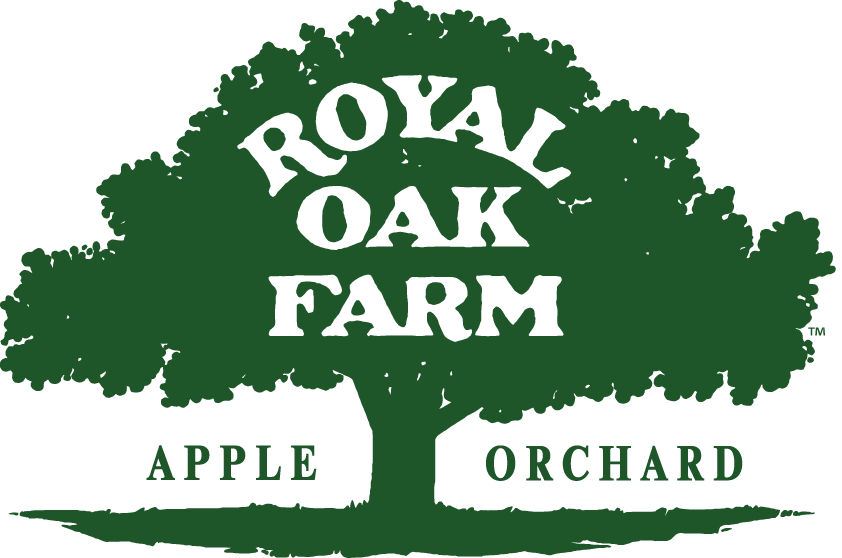Bio-Intensive IPM
At Royal Oak Farm we use an entirely new approach of pest management called Bio-intensive Integrated Pest management (Bio-IPM) to minimize the insect and disease damage to our fruit.
Pest Management Practices
Organic pesticides are often promoted as more environmentally friendly than synthetic pesticides. In fact, some organics can be quite toxic to mammals or harmful to beneficial organisms. At Royal Oak Farm we use an entirely new approach of pest management called Bio-intensive Integrated Pest management (Bio-IPM) to minimize the insect and disease damage to our fruit. Biointensive IPM utilizes a systems approach to pest management based on an understanding of pest ecology. It begins with steps to accurately diagnose the nature and source of pest problems, and then relies on a range of preventive tactics and biological controls to keep pest populations within acceptable limits. Our preventative tactics include a combination of ecological, biological, natural, and cultural controls to keep applications of chemical controls to a minimum.
Beneficial Insects
Often there are enough beneficials (predators and parasites of pest species) to control the pest(s) in the orchard without spraying. On other occasions we can use traps to catch pest species as they enter the orchard, or determine from the traps that there are too few of the pest to cause serious damage to the trees or fruit. In 2007 we began making use of a new product called Cyd-X HP, a 100% ecological solution. Cyd-X HP is a biological, natural baculovirus which specifically and exclusively attacks the target pest and is absolutely harmless to all other members of the ecosystem, including humans. Because of the success of this product we have not had to apply any sprays in the month of August when growers would normally apply at least one timed spray. We also use ISOMATE-CM FLEX which is a pheromone dispensing technology for management of codling moth with a new and innovative design. The Twin Tube design allows for
fast, easy application. The CM FLEX configuration provides flexible rate options for growers depending on CM pest populations. Research has shown that a single application of ISOMATE-CM FLEX provides season long mating disruption that is sustainable and affordable. As a last resort, reduced- risk pesticides are used if other tactics have not been adequately effective, and with care to minimize risks.
IPM Specialist
We have an in-house IPM specialist to monitor a number of species of insects and mites in our orchard, including beneficial species (predators and parasites of pest species). Each week of the growing season, our Specialist participates with the Apple Talk Network of professional growers via weekly conference calls directed by a professional entomologist, as well as university entomologists and plant pathologists from such universities as Michigan State University, Cornell University, the University of Wisconsin, Purdue University and others from around the country. Our weather station in the orchard tracks temperature, rainfall, humidity, leaf wetness, wind speed and direction 24 hours a day, 7 days a week. The weather station transmits this data to our NEWA data base on Cornell University cloud servers. NEWA generates real-time weather data summaries, crop production tools, and IPM forecasts. NEWA tools promote better IPM, reduced pesticide use, and improved environmental protection. Our Specialist will then use this data to monitor pest biology and the progress and severity of various diseases that can attack our fruit here at the Orchards of Royal Oak Farm.
Apple Talk Apples are earth friendly!
Bio-intensive IPM means preventing pest infestations before they happen, monitoring crops closely, and treating pests only as needed. As part of the Apple Talk Network of growers, we participate in a 17-session weekly call that supports sustainable and organic apple producers throughout the growing season with regionally unique information needed to tackle tough pest management and production issues one week at a time. The sessions run from green tip to the last sprays applied before harvest. Apple Talk growers encourage and rely on naturally-occurring controls such as ladybugs, spiders, wasps, bacteria, and predatory mites. Apple Talk farmers must have a deep knowledge of apple ecology to succeed. Their methods are more expensive and more labor-intensive than standard practices such as routine spraying. But Apple Talk farmers know it's worth the extra effort. One taste, and we think you'll agree.

For more info on our IPM Program contact:
Royal Oak Farm Bio-Intensive IPM
15908 Hebron Road
Harvard, IL 60033
(815)228-2174


